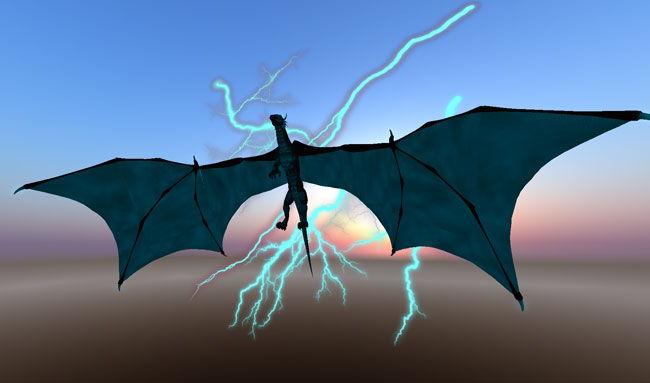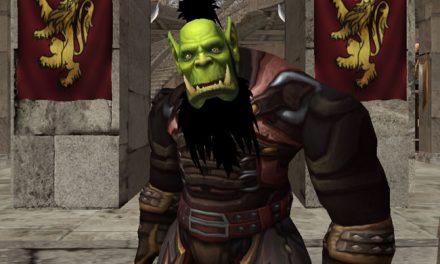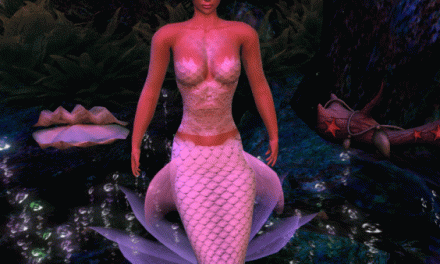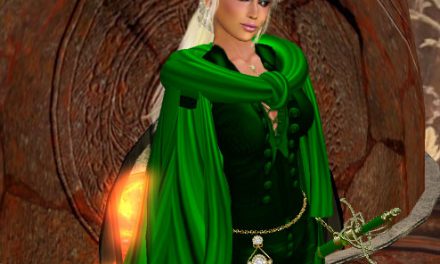
When Mirabelle Lost Her Love
By
Rose Strickman
When Mirabelle lost her love, she set out to regain what had been stolen from her. Packing a bag with a comb, a canteen, a knife, and food, she cut herself a cane and put on her wide-brimmed hat. Thus equipped, she left the green valley her people had carved from the ruined land, and set out to find her love.
Her parents wept to see her go, for none who ventured beyond the valley ever returned. Her people wailed and begged; she ignored them all, eyes set on the skeletal hills beyond. One young man followed her, pleading, eyes desperate; but she shook him off without a word. Nor did she look back as she entered the cursed woods, twisted and crackling with ancient radiation.
There, all was silent. The trees clawed at the sky, and hardly an insect stirred. The air was heavy with poisonous death. But still, Mirabelle was not alone there.
The witch looked up, blue face thin and frightened. “Oh, Mirabelle,” she called, “can you not help me? For my fox-snake is trapped beneath this log, and I cannot get him out.”
“Very well,” said Mirabelle, and used her cane to wedge the log up. The fox-snake came slithering out, yelping, just in time—for the cane snapped under the weight of the log. The fox-snake fawned around the witch’s ankles, writhing and chittering.
The witch scratched his head fondly. “That’s a good deed,” she said, “though now you’ve lost your cane.”
“I’ll count it small loss,” said Mirabelle, “if you can aid me on my quest. For I seek my love, stolen from me.”
“Oh, your love.” The witch shook her head, cackling. “I saw your love: carried away by RAD imps, small and spiky and laughing with their deed. They went west, across the barren plains. Go in that direction. And take this, for your pains.” The witch gave Mirabelle her own twisted black staff, carved with strange signs. “May it bear you on your quest.”
Mirabelle took it without thanks, and, leaning on the witch’s staff, went on.
She spent the night in the silent woods, with the witch’s cane lying beside her. She slept little, but stared with blank eyes at the designs leaping within her campfire.
The next day she came out of the hills, jogging down the slopes into the ashy plains.
If the hills were cursed, then the plains were dead. Not a single living thing stirred; only pale, mourning ashes, lifted in thin veils by the wind. Sometimes ruins of the ancient cities peered out of the soil; a tower, a cornice, a length of wire revealed by the winds, only to be smothered by dust. Mirabelle paid no mind, until the wraith came siphoning out of a half-buried building to confront her.
The wraith grinned at Mirabelle, showing long iron teeth. “Mirabelle,” she rasped, long metal hair flying around her, “how glad I am you’ve come. For it has been an age and an age since I last supped on human blood.” She snapped her teeth, hair writhing around her.
“My blood would be no good to you,” said Mirabelle, “for I’ve lost my love.”
The wraith subsided, eyes dimming with disappointment. “Oh, such loss! For a human without her love is as useless to a wraith as she is to herself. Ah, for opportunity missed!” The wraith wrapped her long claws in her matted hair, moaning.
Mirabelle observed this. “Your hair,” she said, “seems rather tangled. Perhaps you may derive a different benefit from me. I could comb your hair, and you could aid me on my quest.”
The wraith’s silver skin brightened at this. “That would be a kindness; for, howsoever long an age it’s been since I last wet my teeth on human flesh, it is longer since my hair was combed.”
“Very well,” said Mirabelle, and, taking out her comb, unraveled all the tangles out of the wraith’s hair. It took a long time, for the wraith’s hair was very long and was besides made of razor wire, as sharp and brilliant as a knife blade. The comb’s teeth snapped off, one by one, and the handle was worn to dust; but at last the wraith’s hair lay long and straight and smooth.
The wraith admired her lovely new hair. “That’s a good deed,” she said, “though now you’ve lost your comb.”
“I’ll count it small loss,” said Mirabelle, “if you aid me on my quest. Have you seen my love?”
“I saw your love.” The wraith pointed at the pale sky. “I saw a group of imps give your love away, to a long, silver electro-dragon, ribboning out of the sky. The dragon bore your love far away, following the sun to the west. I would guess it was heading toward the ancient mountain. Give me your knife, Mirabelle,” the wraith said, holding out a clawed hand, “and I will give you a gift to aid your quest.”
Mirabelle gave the knife, and the wraith sliced off her own claws, one, two, three. Stringing them on a strand of her own hair, she gave the necklace to Mirabelle. “Here’s for your pains,” she said. “May it defend you on your quest.”
Mirabelle took it without thanks, and, dropping the necklace around her throat, continued.
The plains were endless, but Mirabelle, driven by her consuming need, went on, a relentless figure on the sea of dust, the witch’s cane a black streak on her hand, the wraith’s necklace a metallic gleam at her throat.
At last, night fell. The wraiths all hid within their ruined lairs, and the ghosts came out, howling and weeping for the lost cities, their laments a thin song on the wind. Mirabelle paid no heed to them, but spent the night staring once more into her fire.
The next morning dawned brilliant and scorching hot. Mirabelle, protected by her wide-brimmed hat, went on, sipping water from her canteen.
Just at the place where the plains ended and the foothills of the mountains began, she found a group of RAD imps, lying in the sand and moaning for shade.
“Oh, Mirabelle,” they groaned. “We faint for the heat and the sun. Will you not help us?”
Mirabelle leaned on the witch’s cane and considered them. “Whatever you received from the dragon in exchange for my love,” she said, “it obviously wasn’t enough.”
The RAD imps moaned. “Lightning bolts! Lovely, burning lightning bolts that played in the sky till dawn, but disappeared by the light of day. The dragon cheated us. Will you not help us, Mirabelle?”
“Very well,” said Mirabelle, and gave them her wide-brimmed hat.
The tiny spiky things rolled under its shade, sighing with relief. “That’s a good deed,” said one, “but now you’ve lost your hat.”
“I’ll count it small loss,” said Mirabelle, “if you aid me on my quest. Where is the dragon? Where is my love?”
The imp pointed at the sharp-edged peaks. “Up there, where the air runs thin, the dragon has built a nest of thorn and metal. The nest is lined with jewels and silver and technological miracles from days of old, but none are as beautiful as your love. The dragon guards that with her life. This is for your pains,” said the imp, holding out a long, golden chain. “Though we cannot wish you luck with your quest.”
Mirabelle wrapped the chain around her wrist and left immediately, without thanks.
Mirabelle climbed all day, higher and higher into the peaks. The path was perilous; sharp stones cut into her soles, and she wished for her shady hat. But the witch’s cane lent her strength, bearing her weight for her as she went up and up, and the wraith’s necklace of claws was cool against her skin. Plants began to reappear as she rose above the barren plains, shriveled stalks and bushes, but here and there she saw signs of the electro-dragon: scorched areas of grass turned to metal, and stone turned to glass.
That night, Mirabelle lit no fire, but still she did not sleep. She could hear the RAD imps creeping about, muttering that perhaps they could win the dragon’s favor, if only they could find Mirabelle in this cursed dark. At the height of the peak, Mirabelle saw lightning crackle, and a silver, steady light, watching her like an eye.
In the morning, she immediately began climbing again, using the cane to lever herself up rocks and pick her way up cliffs. Her pack she left behind, hoping to distract the imps. Her ploy failed; the imps scampered after her, dashing behind rocks whenever she turned back to look.
At last Mirabelle took the wraith’s necklace from about her neck. “Obey your mistress,” she said, “and protect me on my quest.” And she cast it to the ground.
Instantly, razor-sharp spikes of metal erupted from the ground, stabbing each imp through and through. Shrieking with agony, the imps bled and sizzled into nonexistence, impaled upon the shining stakes of the wraith’s claws.
When she was sure each imp was dead, Mirabelle went on—but not before retrieving her hat, now stained with imp blood, from where the imps had dropped it.
Now the air was growing thin; Mirabelle’s head swam, and the high view of the world spun before her eyes. Just lifting her feet became a task beyond her power, and she realized she would never make it to the dragon’s nest.
She took up the witch’s cane. “Obey your mistress,” she said, “and bear me on my quest.”
Instantly, the cane wrenched itself from her hand and floated in mid-air, ready for her. Mirabelle sat down upon it, and the cane flew to the top of the mountain.
There, with a vast, dizzying view of all the world, the dragon coiled in her nest. It was made of metal, twisted pieces of the lost world, looted from ruins and silvered and smoothed and mellowed by the dragon’s constant, metal-filled breath. Inside, the nest was lined with silver and jewels and shiny pieces of ancient technology. But none shone so greatly as Mirabelle’s love, trapped within the dragon’s coils.
At the sight of the electro-dragon, even the loveless Mirabelle caught her breath, in awe and fear. The dragon was huge and old, covered with shining metal scales; steel spikes marched along her spine, and fangs jutted from her trap-like jaws, before her pitch-black eyes that never ceased moving, always watching for those who would take her treasure.
The dragon saw Mirabelle. With a hissing growl, she uncoiled herself and lunged, jaws already opening, treasure tossed aside in her heedless rage.
For an instant, Mirabelle froze. There was her love—but there was the dragon. Forward it advanced, gathering breath for the horrible rush of chill silver flames, making Mirabelle’s hair lash, her clothes whip around her.
Mirabelle’s hand flew to her hat. She tore it off and sent it whirling away to one side, still stained with imp blood.
Distracted, the dragon turned her head to follow it. And Mirabelle saw her chance.
She took the imp’s chain. “Obey me,” she said, “and bind the dragon!” And she cast it at the monster.
The chain wrapped tight around the dragon, whirling in loops to bind its flanks and hold it to the earth. The dragon cried out as its flesh smoked where the gold touched it, and it crashed to one side, groaning, scales shriveling, eyes already dimming with gold-poisoned death.
Even before it died, Mirabelle was climbing over its twitching body, herself trembling with eagerness. She could see her love, still within the nest, and she ached more than ever for completion.
Mirabelle put forth shaking hands, and took her love unto herself again.
Her soul opened like a flower, and Mirabelle cried out in joy and pain. A million images poured into her mind, things she had not considered since she had lost her love: her mother’s face, her father’s laughter, the beauty of her valley. She thought of the desperate pleas of the young man she’d left behind, of the desolation she had passed through, and a great pain pierced her. Her tears began to flow.
The dragon’s dead body melted away when the tears touched it; the river of weeping over spilled the nest. Down the mountainside Mirabelle’s tears flowed, full of life and longing and love. The spikes of the wraith’s claws, still embedded in the earth, turned into green and tender plants when the river touched them; soft moss and verdant grass spread like a tide before the tears, and still they flowed on.
The wraiths of the ruined cities fled, screeching, before the tide of Mirabelle’s tears, and a rolling carpet of green unfurled before the flow. All poison was washed away, all ghosts laid to rest, all life returned, all by the force of Mirabelle’s love. Even the hills above her homeland received it, the trees relaxing and turning green, soft leaves unfolding as the witch shrieked and fled, looking for harsher climes.
Down in the valley, Mirabelle’s people exclaimed as the lifeless iron hills greened before their eyes. They cried out as the shining new river cascaded down, bringing life and warmth, and they knew that this was Mirabelle, and that her quest had succeeded, and more than succeeded.
And when Mirabelle herself arrived, walking tall and strong beside the river of her own tears, heart complete once more, whom did her eyes seek? Her family? Her young man? Her valley entire?
It did not matter. Her love could encompass all.
Rose Strickman is a short story writer and all-around fantasy nerd living in Seattle, Washington. Her work has been published in several anthologies, including That Hoodoo, Voodoo That You Do, Robotica and Into the Mist. You can also read her stuff in the e-zines The Lorelei Signal and Luna Station Quarterly. Feel free to connect with her on LinkedIn!




